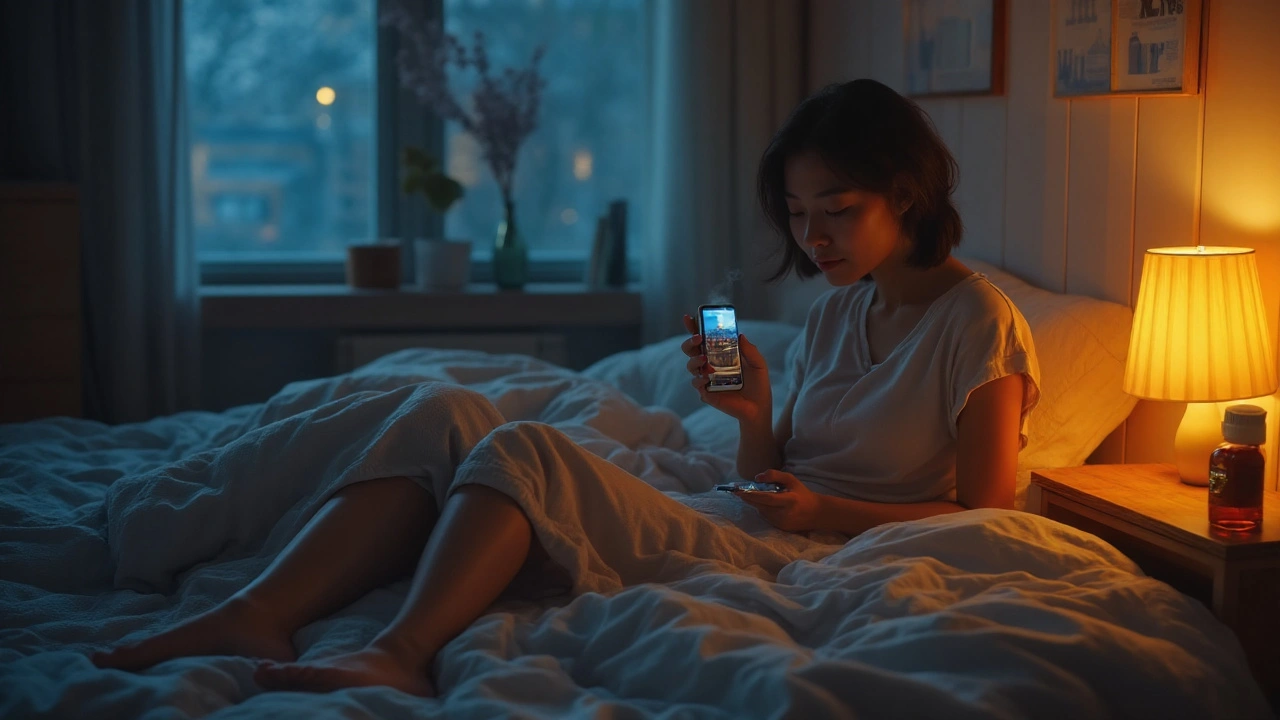Insomnia Relief: Easy Steps for a Good Night's Sleep
If you’re scrolling here, chances are you’ve tossed and turned without catching enough Z‑zzs. Insomnia isn’t a mystery – it’s often a mix of habits, stress, and a few easy‑to‑fix things. Below you’ll find straight‑forward actions you can start right now, no fancy gadgets required.
What’s Keeping You Awake?
First, figure out the main culprits. Too much screen time late at night floods your brain with blue light, telling it it’s still daytime. Caffeine after noon can keep the nervous system buzzing. And a cluttered bedroom – noisy street, bright lamp, or even a pile of laundry – tells your body it’s not time to wind down.
Take a quick inventory: Did you have coffee after lunch? Is your phone on the nightstand? Is the room temperature comfortable? Spotting one or two of these can explain why you’re restless.
Quick Fixes You Can Try Tonight
1. Light Switch: About an hour before bed, dim the lights and switch off screens. If you need a phone, use the built‑in night mode or a blue‑light filter. This signals your brain that darkness is coming.
2. Caffeine Cut‑off: Aim to stop coffee, tea, or soda by 2 p.m. If you love a warm drink after dinner, try herbal tea like chamomile or peppermint – they’re caffeine‑free and soothing.
3. Simple Routine: Do the same calming steps each night – wash your face, change into comfy clothes, read a few pages of a low‑key book. Consistency trains your body to expect sleep after those actions.
4. Breathing Trick: Lie down, close eyes, and breathe in for four seconds, hold for seven, exhale for eight. This 4‑7‑8 pattern slows your heart rate and can push you into sleep mode within minutes.
5. Natural Aids: If you still struggle, consider a small dose of melatonin (0.5‑3 mg) about 30 minutes before bed. It’s a hormone your body already makes, and a tiny supplement can help reset your clock without feeling groggy.
Stick with these steps for a week. Most people notice calmer evenings and easier drifting off. If insomnia persists despite these changes, it may be time to talk to a doctor – there could be an underlying condition that needs attention.
Remember, the goal isn’t a perfect night every time but building habits that give your body a better chance to rest. Try one tip tonight, add another tomorrow, and watch your sleep improve step by step.
Does valerian help you sleep? See what the research says, how to dose it, who should avoid it, and smart tips to use it safely-without next-day grogginess.
